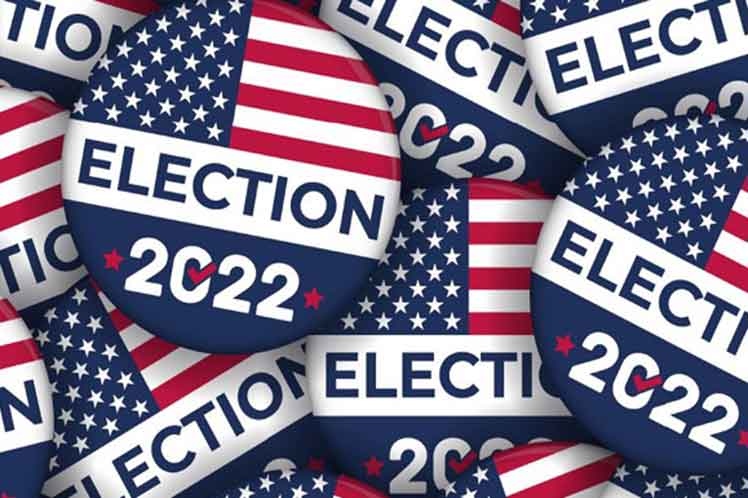Although the president is not voted for or against, it’s a process determined by his popularity, his acceptance, and assessments of his work define his trustworthiness as party leader.
For others, its results hold more implications in domestic politics, and it’s not usual for external affairs (as in Florida with the Cuba issue) to have significance, when that process results in the loss of control of the chambers for the president’s party, it’s considered as a vote of punishment for his management. Meanwhile, achieving dominance of both chambers guarantees the president greater control and dominance of his domestic politics, although if he had the majority of the chambers against him, he would always have veto mechanisms for legislative approvals.
In these midterm elections, the Democrats’ greatest difficulties are not related to their legislators, but rather to the bad image that citizens have of Joe Biden. If in reality these elections constitute a punitive vote, it will be difficult for those on the presidential side to keep both chambers, or at least not lose seats in the Senate. Biden appears as a weakened president, who doesn’t even get the support of his party. The leftist positions that fought for relations with Cuba, such as the Alexandria Ocasio-Cortez, the Black Caucus, and Black Live Matter, have lost space and political weight.
Biden seeks to win support with extravagant measures, like freeing prisoners detained for using marijuana and promoting free abortion, he is still fighting within the Supreme Court and the Republican Senate. Still, Biden is failing to win back the support of liberals and leftists shouldered him into the presidency. The problem lies in his personality, since he is seen as a worn-out man with little training to return to a second term in office, so “punishing” him now, not voting for him and his party, is the option promoted by Republicans.
The right to abortion, inflation, violence with firearms, the storming of the Capitol on January 6th, 2021, the Covid-19 pandemic, and the right to vote for Latinos and newcomers to that country, are issues that could define this election cycle and are arguments that Democrats are strongly using. None of them are about foreign policy, much less about Cuba, for which there’s no reference to current bilateral relations and how it could shift in the future.
In any case, what could move the most is the bilateral issue, it would be closer to what Barack Obama privileged in his time; in fact, some elements can be seen that aim at resuming that path, like the reopening of services at the Embassy in Havana and the low-key visit of U.S. officials.
Politically, they will continue to keep their critical position on our system and encourage citizen insubordination, confrontation with authorities and the intention of suffocating us. There are no indications that even having control of Congress, Biden intends to modify the policy of the blockade towards Cuba, since Washington interprets the relations of coexistence, under the criterion of subordination and submission.
Another important element is that they are the ones who have the initiative and fight to uphold that status of attending conversations or meetings when it’s most beneficial. This is also the case with businessmen and it will be very difficult for them to expand their investments if they do not first see a change in the attitude of their government.
In short, the prospect of Democrats winning and even exceptionally winning both chambers will not necessarily decide relations with Cuba at the level of “Obama time in office”, although it can create a climate of satisfaction and overcome some existing adversities that don’t compromise Democrats politically. But the lack of a defined position on Cuba and, in perspective, in the short and medium term, is going to delay the process, especially due to the limitations for influencing the legislative body and showing the political and economic options that has the country. Under these conditions, it’s totally ineffective to decide on a policy as risky as a change of policy towards Havana.
Therefore, after these mid-term elections in the United States, in good Cuban terms, the story will unfold as usual.
 Escambray ENGLISH EDITION
Escambray ENGLISH EDITION





Escambray reserves the right to publish comments.